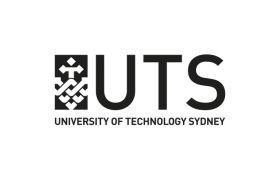The David Prast Fellow in Spinal Cord Regeneration (Senior Research Fellow/Principal Research Fellow - [Archived Advertisement]
University of Technology Sydney (View other jobs from this organisation)

The David Prast Fellow in Spinal Cord Regeneration (Senior Research Fellow/Principal Research Fellow - University of Technology Sydney - ResearchCareer
http://www.researchcareer.com.au/
We are recruiting a dynamic and experienced researcher to join the Centre for Neuroscience and Regenerative Medicine, UTS, focused on leading research into the rehabilitation of Spinal Cord Injury (SCI) and other movement disorders, using state of the art stem cell research focused on models, mechanisms and techniques directed towards ultimate human studies and implementation.
Funded thanks to a collaboration by Spinal Cure Australia, Spinal Cord Injuries Australia and UTS, the David Prast Fellow in Spinal Cord Regeneration (Senior Research Fellow/Principal Research Fellow in Stem Cell Research) offers exceptional candidates a unique opportunity for conceiving, designing and implementing novel projects both in in vivo and in vitro (animal models pre-clinical validation and potentially humans) in the area of Spinal Cord Injury research, in collaboration with the Centre Director, Professor Bryce Vissel and Professor for Spinal Cord Injury Research, Professor Reggie Edgerton.
The position offers you the fantastic opportunity to establish, lead and eventually grow a research group within the Centre utilizing a cross-disciplinary approach to achieve research goals. UTS has a bold vision to be a world-leading university of technology. Consistently ranked the top young university in Australia, we are an innovative university with a culturally diverse campus life and extensive international exchange and research programs. We are thrilled to offer this opportunity to shape research at the Centre for Neuroscience and Regenerative Medicine, a priority initiative of UTS.
About the Centre
The Centre for Neuroscience and Regenerative Medicine is a new, priority initiative of UTS, aiming to become a sustainable, world-leading hub of research excellence, working to achieve transformative outcomes for sufferers of neurological diseases and SCI through employing a novel trans-disciplinary approach. The Centre pursues research in the establishment of methods, tools and technologies needed to profoundly advance restoration of function in humans with SCI and other related neurological deficits. The Centre is divided into various overlapping and complementary research streams, directed to high impact scientific research related to fostering, promoting and accelerating preclinical translational spinal cord research outcomes generally, with the main focus of the initiative centering on the translation of this research to human experiments and clinical applications.
About the Role
You will be expected to establish and lead a research group within the Centre for Neuroscience and Regenerative Medicine, contributing to world-standard research outcomes in stem-cell research, focused primarily but not solely on SCI and potentially other movement disorders. The role requires your focus in basic, preclinical and clinical research. You will undertake and lead novel research focused on generating creative solutions in order to push the technical and eventually clinical boundaries of stem cell research at a pace and quality expected from scientists with equivalent experience at leading institutes world-wide; to assist in the development of relevant infrastructure, funding, collaborations, publications and profile; and to foster, promote and accelerate preclinical translational SCI outcomes.
As well as leading research in extensive studies, you will conduct animal experimentation to assist in developing and demonstrating new techniques and models not already established in the group with the inevitable goal being to translate these new techniques into SCI treatment with clinical potential. Some in vitro studies and cell signaling studies may be required but are not expected initially to contribute significantly to the project. You will be offered substantial opportunity for development, subject to funding.
Remuneration & Benefits
Base Salary Range: $121,469 to $155,915 pa (Level C-D)
This role attracts 17% superannuation in addition to the base salary. Employee benefits include flexible work practices, child care centres, generous parental leave and salary packaging opportunities.
This position is full-time and appointment will be made on a fixed term basis for five years, with the opportunity for continuation subject to performance and availability of funding.
How To Apply
Prior to commencing your application for IRC98893, please review the Position Statement and the relevant selection criteria - click on the apply link to be taken to the relevant page. You are required to address the selection criteria in your submission in a separate document.
Please note that only those applications submitted via the UTS online recruitment system will be accepted. Current UTS employees should apply through their UTS Employee Self Service function.
As you will be unable to save your application once started, please have all required documents and information available prior to commencing.
Please ensure that the file name for each document submitted includes IRC98893.
Specific enquiries or issues with your application may be directed to the UTS Recruitment Team at recruitment@uts.edu.au or on +61 (0) 2 9514 1080.
Please be advised that as part of the selection process that you may be requested to deliver a presentation, the audience for which may include individuals not on the Selection Panel.
Closing Date: Monday 9th October at 11.59pm (AEST)
Please note: We are only accepting on-line applications for this post, however, if you have a disability that makes it difficult for you to provide us with information in this way, please contact the Recruitment Team for assistance.
UTS is widely acknowledged as a leader in promoting gender equity and social justice. Cited as a WGEA Employer of Choice since the inception of the award, UTS is a current participant in the SAGE pilot program, the Australian trial of the Athena Swan gender equity accreditation program. We welcome applications from women, particularly for senior and non-traditional roles.
